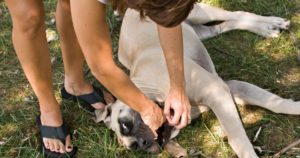Finding your dog staring into space could be rather unsettling, especially if you have no idea why this is occurring or how to help your dog.
The first thing to remember is to not panic or immediately try to get your dog’s attention. You should sit and observe your dog while contemplating what could be the cause of this odd behavior.
It’s difficult to give a straightforward answer, but we’ll share a few reasons why your pup might be spacing out, and they might surprise you.
They are Hearing Something
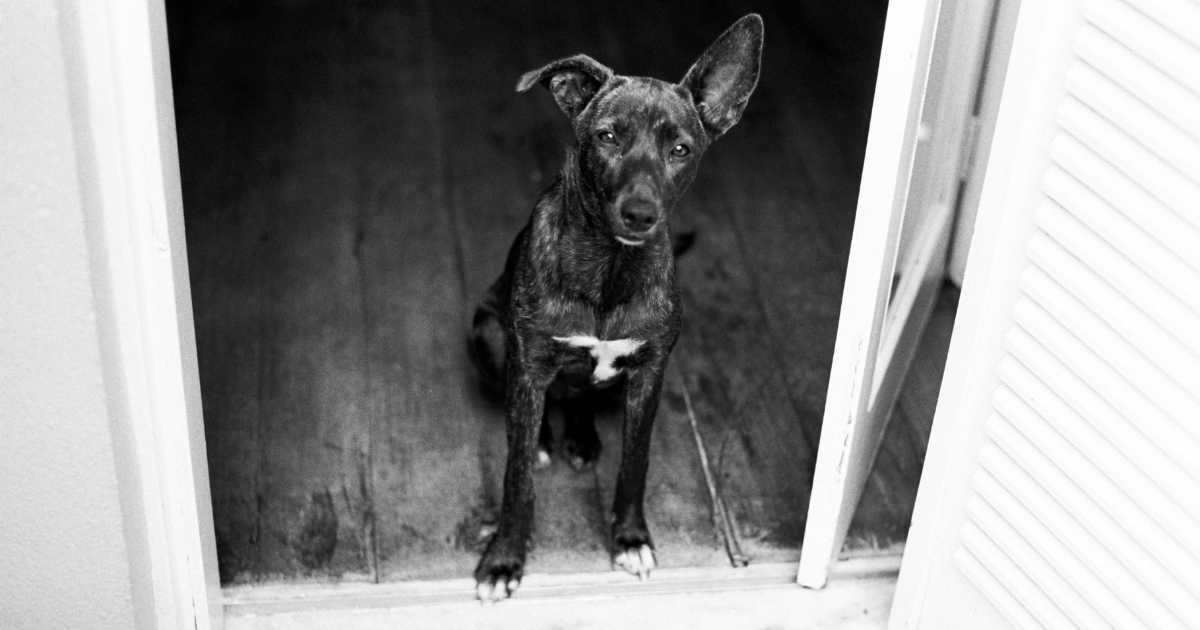
It’s no secret that dogs have incredible hearing, especially pertaining to high-pitched noises. Humans cannot hear above 20,000 Hertz (Hz), but dogs can hear up to 65 000 Hz!
Dogs can also hear noises that are too soft for human ears, causing their hearing to be a lot more sensitive than ours.
Your dog might be hearing something in the house, or outside, that your ears cannot detect.
They might be able to hear little critters in your walls, like termites, rats, bees, or even squirrels! If your dog is continuously staring at a specific wall or area, you should hold your ear to the wall and listen for any signs of an infestation.
If you notice that your dog is tilting their head from time to time, this usually indicates they are trying to solve a mystery, like assessing the source of a sound.
Another telltale of your dog using its listening sense is its ears, a dog’s ears can move a lot more than ours. If you notice your dog shifting their ear position to the front, this indicates they are concentrating on a sound and trying to deduce what it is.
Dog Depression
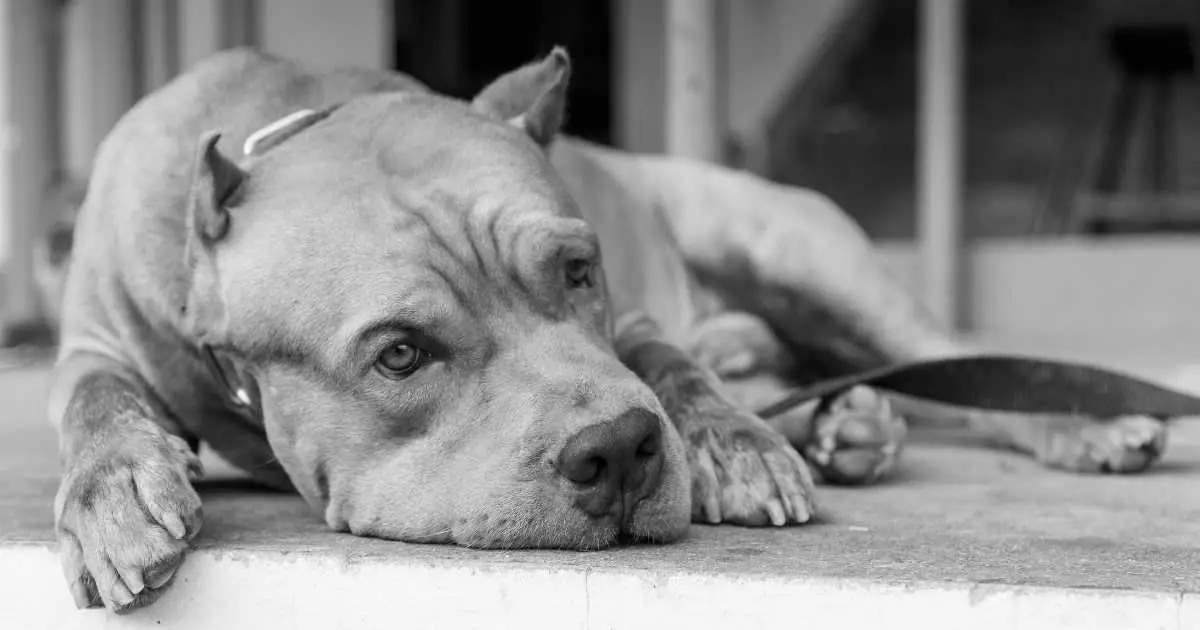
Even though dogs can’t express emotions the same way as us, it is recognized that mental health problems, such as depression, can affect dogs.
A major distressing event or life change like moving to a new home, an owner passing away, or being abandoned, could lead to a dog showing signs of depression.
Signs of Dog Depression
Dog owners can look out for these signs:
- Trembling
- Tail-tucking
- Hiding
- Staring into space
- Clingy/needy behavior
How to Help Your Dog Cope with Depression
Giving your dog some extra attention is the best way to show your support, this could be an extra-long walk or more playtime. Usually, with some extra attention and mental stimulation, you will see your dog’s behavior returning to normal.
If after this, should your dog still seem to show the same signs, you should consult your vet to check for any underlying medical conditions that could be causing the depression symptoms.
Canine Cognitive Dysfunction Syndrome (CCDS)
Unfortunately, a dog staring into space could be an indication of Canine Cognitive Dysfunction Syndrome (CCDS), also sometimes called dog dementia.
CCDS is a progressive neurodegenerative disorder that is commonly found in senior dogs and which is often paralleled to Alzheimer’s disease, found in humans.
Dogs who have CCDS display behavioral changes that are described as DISHA (Disorientation, altered social Interactions, altered Sleep-wake cycles, House soiling, and altered Activity levels)
A dog staring into space, without any reaction, is one of the disorientation signs. Along with getting stuck in corners and walking around aimlessly.
Behavioral Traits of a Dog With Canine Cognitive Dysfunction Syndrome
Here are some behaviors that a dog with CCDS might display:
- Doesn’t respond to its name
- Fails to recognize owner, family, or favorite toys
- Walks around aimlessly
- House soiling, or forgetting other trained commands
- Gets lost in the backyard
How to Help Your Dog
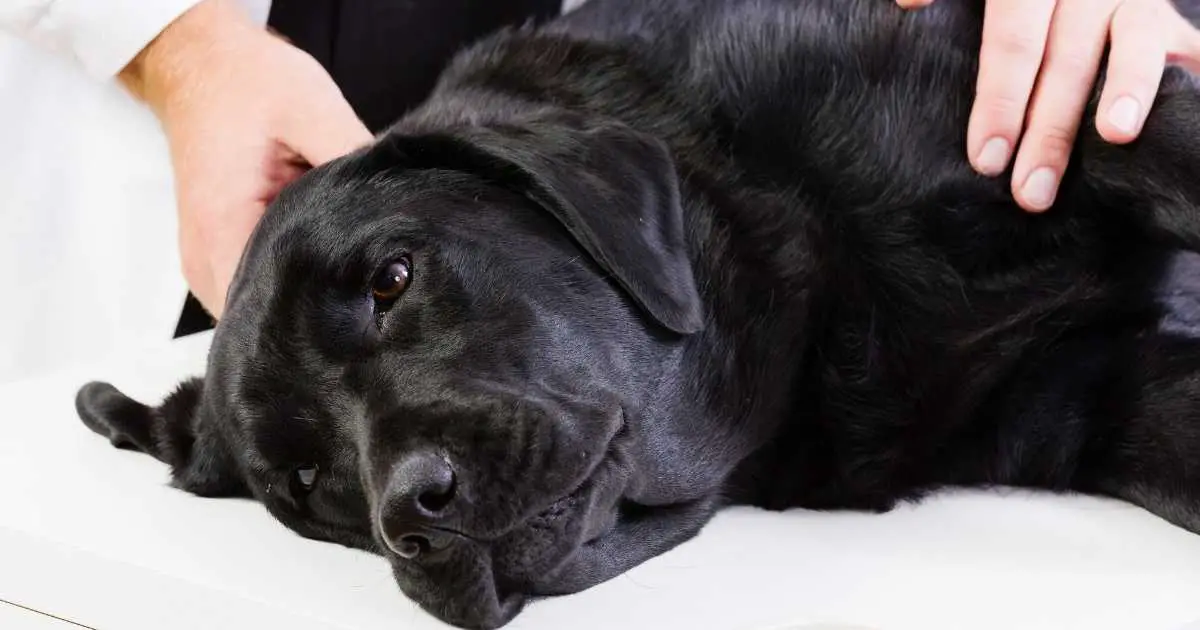
If you suspect that your dog might have CCDS we would advise you to make an appointment at your local vet to get a proper diagnosis. Usually, a vet will prescribe increased stimulation for your dog to maintain brain activity.
You should also be aware of what ingredients you are feeding your dog and what is important to maintain their health, especially for senior dogs. Here is an in-depth comparison.
Other Health Issues
Besides CCDS, staring into space could indicate other health issues. These are sometimes difficult to identify, even taking other signs into consideration.
If you think your dog might be suffering from any health issue, you should immediately take them to the vet to have a proper diagnosis and treatment plan created.
Bad Eyesight
Sometimes, your dog might be staring into space because they don’t recognize what they’re looking at, this is more common in senior dogs.
If you move your furniture around and your dog walks into everything, or can’t find their food bowl, you should suspect their eyesight is deteriorating.
You should consult with your vet if you notice this, as it might just be old age or it might be a sign of a disease. Let the professionals assess and properly diagnose your pup.
Infections
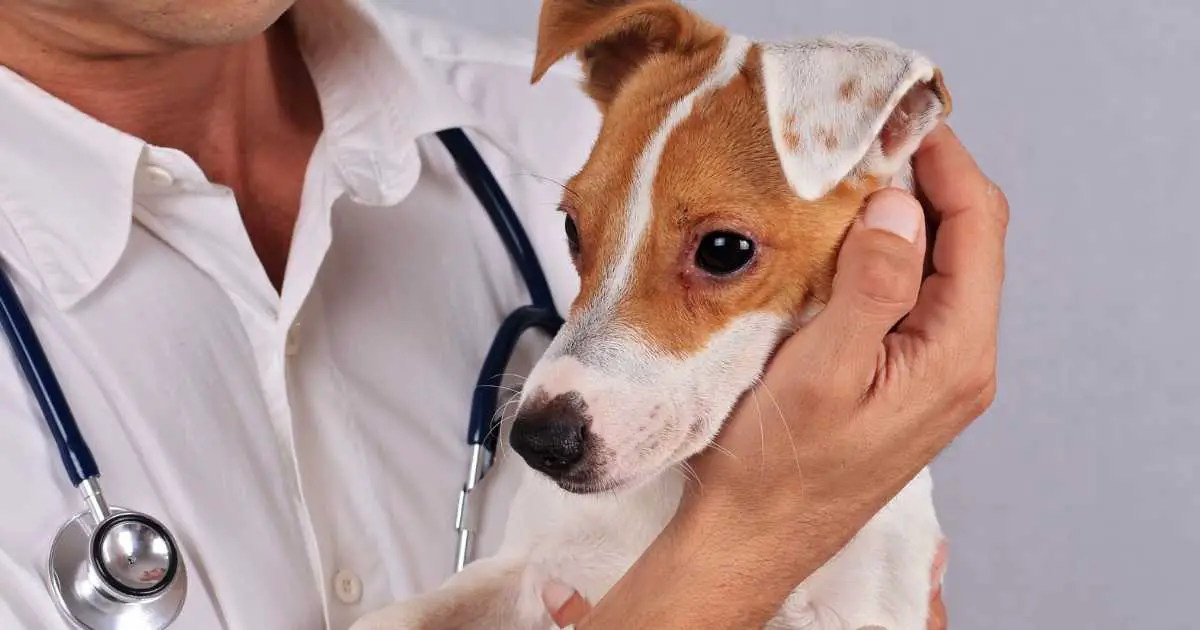
Dogs that have an infection might show a few symptoms, one of them being disorientation.
The signs of disorientation in your dog are:
- Vomiting
- Inability to stand
- Darting eyes
- Constant head tilting
- Staring into space
- Sudden falling
Disorientation is not just a symptom of CCDS. It could be a condition on its own or it could indicate various types of infections, like a UTI, cystitis, or bacterial infection.
If you notice your dog has disorientation signs and signs of an infection (coughing, vomiting, lack of energy, blood in urine), you should contact your vet.
Seizures
Seizures are usually associated with convulsions or foaming at the mouth and other physical symptoms, but seizures in dogs (and humans) can also have less dramatic symptoms like a dog staring into space.
Due to this, seizures are not always easy to detect in dogs. If your dog regularly stares at the wall or into space, it could be having a focal seizure also known as a partial seizure, which can be caused by cancer, epilepsy, or poisoning.
These types of seizures can be managed with proper medication, and if any serious underlying causes are ruled out by a vet.
Compulsive Behavior
Staring could be a compulsive behavior, which bears a resemblance to human OCD (obsessive-compulsive disorder).
These behaviors are exaggerated and show up out of context in inappropriate situations. It also tends to be displayed for longer periods of time than you’d expect.
Examples of Compulsive Behaviors in Dogs
- Spinning
- Barking
- Chewing
- Tail-chasing
- Sucking on a toy
- Staring into space
These behaviors occur when the dog is stressed or frustrated and is usually repeated every time the dog is in a stressful situation.
Compulsive behaviors also seem to worsen, so be sure to keep an eye on any abnormal behaviors that your dog displays and try to change those behaviors before your dog turns aggressive.
Attention Seeking Behavior
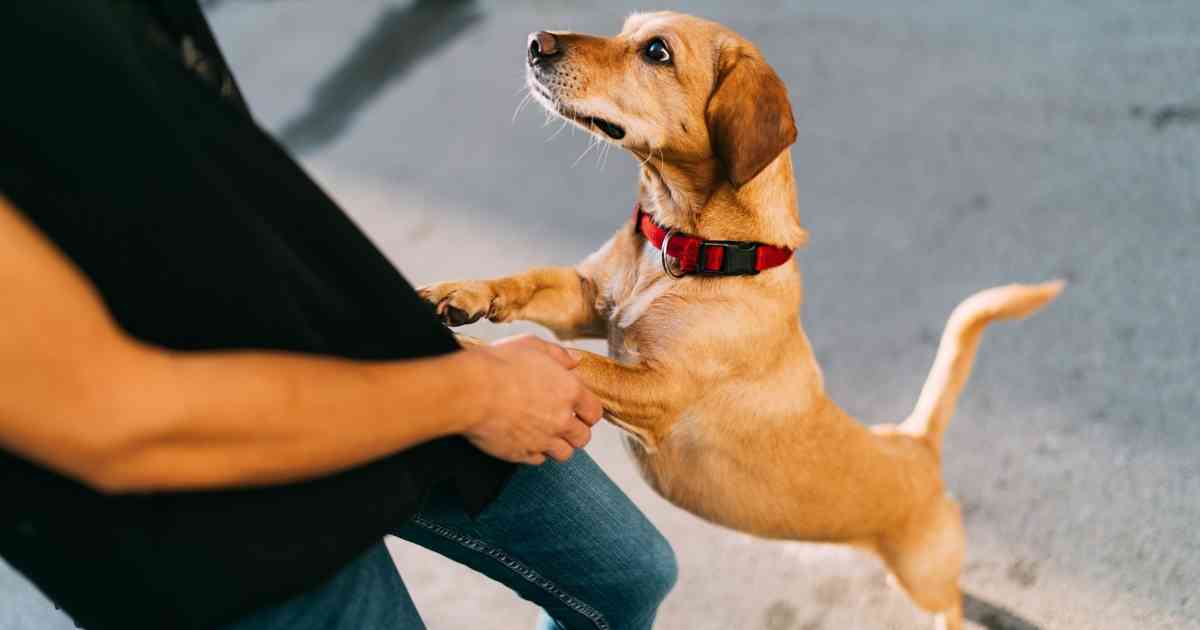
Dogs are intelligent animals. If they notice that a certain behavior triggers attention from their owner they are more likely to repeat that behavior.
A great way to test this is to set up a camera and inspect if your dog displays the behavior when you are not home or in the same room. If they do not, then it is safe to assume they are seeking your attention.
Dog Staring Into Space After Surgery
If your dog has had surgery in the prior 24 hours and was under anesthesia, it is completely normal for your pup to have strange behavior like:
- Whining
- Sleeping a lot
- Staring into space
- Change in appetite/drinking
- Hiding
Dogs usually take about 24 hours to recover from general anesthesia, but if you notice these signs after 24 hours you should contact your vet to have a check-up.
What to Do if You See Your Dog Staring Into Space
A dog staring into space is not something that should be overlooked or denied.
If you notice your dog staring into space for the first time, don’t panic immediately. It doesn’t necessarily signify the worst of the cases we discussed above.
Take note of the circumstances before and during the time frame that your dog is staring into space. Was the dog in a stressful situation recently? How long do they stare?
Write down all your observations on a notepad or make a note on your phone.
If it happens again, write down your observations again. You can start to compare any similarities between the two instances. Continue adding entries until you uncover a possible cause.
Contact your vet and present them with your observations. It will help them considerably while making an informed diagnosis to provide the best care for your pup.
Most importantly, make sure to give your furry friend lots of love and attention.
Final Words
We hope that this article has helped you narrow down what the cause might be behind your dog staring into space. Most importantly, don’t panic when you see your dog doing this strange behavior. Sit, observe, take notes, and convey them to your vet.

